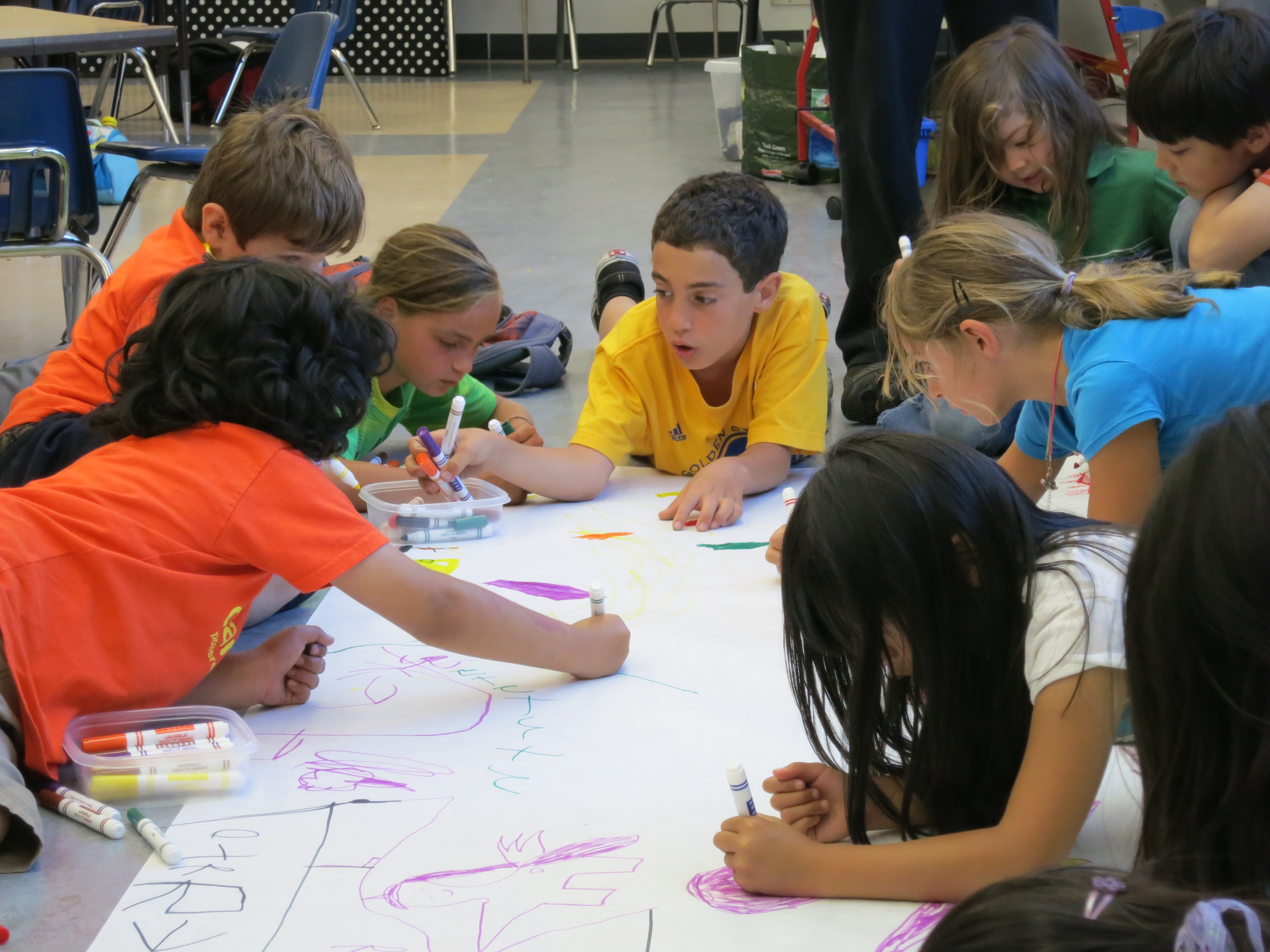Most people say that it is the intellect which makes a great scientist. They are wrong: it is character. – Albert Einstein
Why is character education important?
Good character is something that is developed. Character education improves social and emotional learning by teaching children how to make wise choices. By teaching character education, children can have a greater impact on the world! Children are the future citizens who will shape our society in the coming years – it is important that they have a strong foundation of values to work from.
What values should character education incorporate?
There are several values that define good character. Many of the common ones are:
- Trustworthiness
- Respect
- Responsibility
- Fairness
- Caring
- Citizenship
 Camp Me! campers working on a collaborative garden mural art project.
Camp Me! campers working on a collaborative garden mural art project.
Having a developed core of values promotes citizenship, and a relationship to the world based on kindness, respect, and integrity!
In a large and growing number of schools around the country, students are learning more than just reading, writing, and arithmetic. They are learning what character education advocates call the fourth and fifth R’s: respect and responsibility.The formal teaching of morals and values is not a new phenomenon; rather, it has been part of democratic thought throughout history.
Character education, as it is known today, began to appear in the early 1990s. A 1991 book by Thomas Lickona, Educating for Character, reintroduced the idea that there is a set of common beliefs and values upon which all people can agree. A year later, a group of educators, ethicists, and scholars met in Aspen, Colo., for a gathering that resulted in the Aspen Declaration and the beginning of the Character Counts Coalition.
Since the early 1990s, the federal government has embraced the idea of offering character education in public schools and has made grants available to states interested in piloting new character education programs in their schools. Former first lady and former teacher Laura Bush has promoted the use of character education in schools, saying that “reading and writing are not all we need to teach our children.” “Respect and responsibility are just as important,” Mrs. Bush continued. “And we need to make sure we’re teaching our children to be responsible citizens who have good values and ethics.”
Most character education programs in use today are based on the traits developed from the civic virtues found in the U.S. Constitution and the United Nations charter—as well as common civil and moral values such as honesty, courage, and respect for others. Advocating that honesty is better than dishonesty, or that free speech is better than censorship, rarely invites controversy.
Character, in the long run, is the decisive factor in the life of an individual and of nations alike. – Teddy Roosevelt
Editorial Projects in Education Research Center. (2004, August 3). Issues A-Z: Character Education. Education Week.Retrieved Month Day, Year from http://www.edweek.org/ew/issues/character-education/
